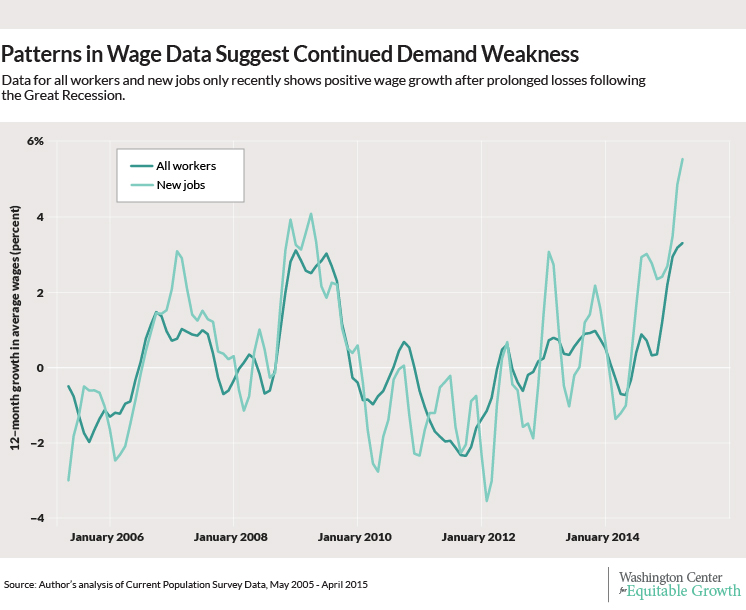Weekend reading
This is a weekly post we publish on Fridays with links to articles that touch on economic inequality and growth. The first section is a round-up of what Equitable Growth has published this week and the second is work we’re highlighting from elsewhere. We won’t be the first to share these articles, but we hope by taking a look back at the whole week, we can put them in context.
Equitable Growth round-up
How the relationship between compensation and productivity has changed.
Corporate short-termism and the feasibility of a financial transaction tax.
The federal tax code might be progressive, but that’s definitely not true for state and local tax codes.
Household surveys underpin some important U.S. economic data and there’s some evidence they increasingly have measurement errors.
Links from around the web
Policymakers and journalists have become concerned about the “gig economy” where the fundamental relationship between employers and employees has changed. Josh Zumbrun and Anna Louie Sussman look at the data and don’t find much support for that narrative. [wsj]
Similarly, the threat of robots disrupting the labor market and throwing workers out of their jobs has been a topic of quite a few conversations. But as Matt Yglesias shows, there’s no sign of increasing automation yet. And that might be a problem. [vox]
On the short-termism front, John Jay College economist J.W. Mason takes to the data to follow-up on his research on stock buybacks. The first cut at the data indicates that shareholders don’t use this money to invest in new firms. [slack wire]
A number of campaigns and advocates have been pushing for higher minimum wages across the United States. As Noam Scheiber reports, the size of the increases they are advocating for are outside the range economists have studied. [nyt]
Wealth inequality has been on the rise in the United States. Ana Swanson highlights an important aspect of that rise: the generational aspect. [wonkblog]
Friday figure
Figure from “The Great Recession and its aftermath: What role do structural changes play?” by University of California, Berkeley economist Jesse Rothstein.


